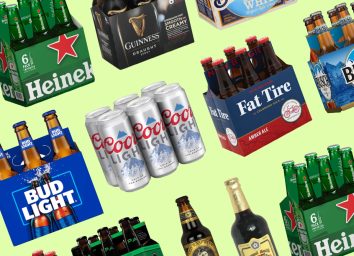This Is the Exact Amount of Alcohol That Derails Weight Loss, New Study Says
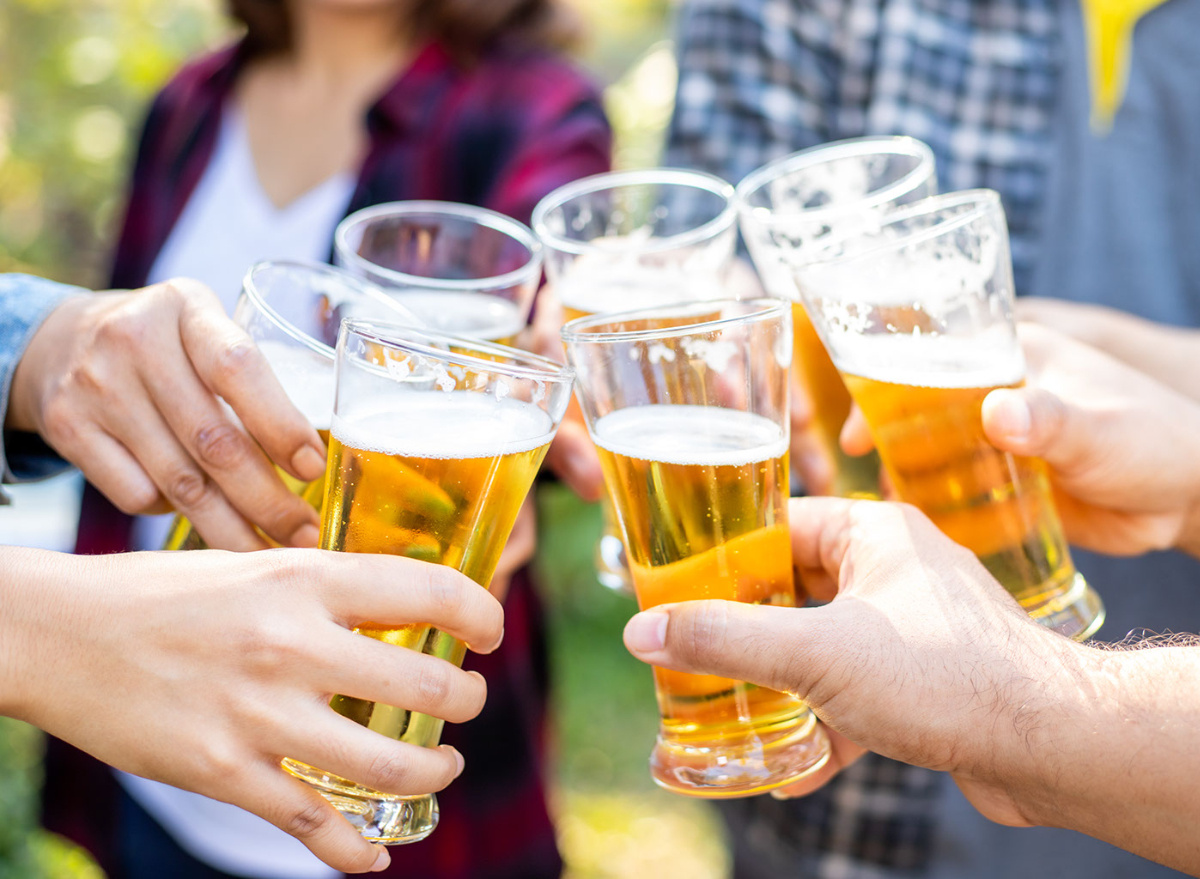
You’ve cut fat and sugar, you’re exercising regularly, and you can’t help but notice that still, that bit of extra weight is not exactly melting off… so, if you’re being honest with yourself, is there maybe one more lifestyle choice that could zap away those unwanted pounds, if you’d be willing to try it? There is, according to a team of food science researchers who have determined how much alcohol affects your ability to lose weight. It’s not just the calories, people—there’s deeper science behind why drinking is a weight-loss foe.
Keep reading to learn how much alcohol these nutrition pros say you can have and still lose weight. Also, don’t miss What Happens To Your Liver When You Drink Beer.
To start, their approach was thorough.

Recently, a team of nutrition and food science researchers representing universities, clinics, and hospitals throughout Spain collaborated to review what they say were “all prospective clinical studies and systematic reviews” that analyzed the health effects of beer published between January 2007 and April 2020. Their exhaustive analysis of these 13 years of past studies, recently published in the peer-reviewed journal Nutrients, also included some alcoholic drinks other than beer (such as wine), as well as non-alcoholic beer.
They were looking at risk factors.

The research team was invested in understanding the health effects of beer and other alcoholic drinks because, they say, “In recent years, there has been an increasing interest in the potential health-related effects of moderate alcohol consumption.” So, their work examined “beer-associated effects on cardiovascular and metabolic risk factors to identify a consumption level that can be considered ‘moderate.'”
Their findings could be considered remarkable.
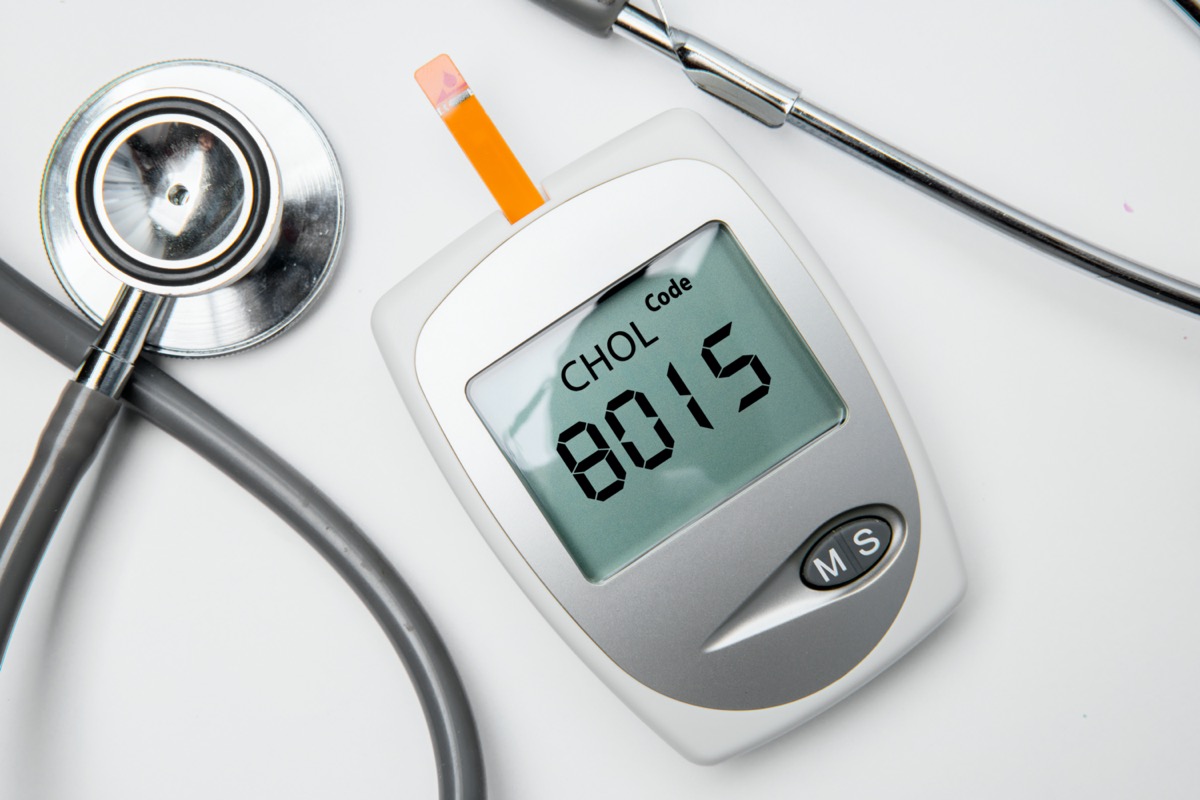
The team uncovered some groundbreaking findings about the effects of alcohol on overall health—you can read the list in 4 Major Effects Drinking Beer Has on Your Health, New Study Says. (Yes, they say: In some ways, drinking can have positive effects on one’s health.)
There’s a factor that’s largely within your control that dictates your health and wellbeing, too.

You might already recognize that the relationship between what we eat and our overall health is inseparable. Not only does healthy food deliver nutrients that nourish the body, but being overweight can lead to discomfort, pain, and actual health problems associated with the heart, metabolic disorders (such as diabetes), and more.
(On this topic, check out Sure Signs You May Be Getting Diabetes, Says CDC.)
So, the amount of alcohol that you can drink and still lose weight is…
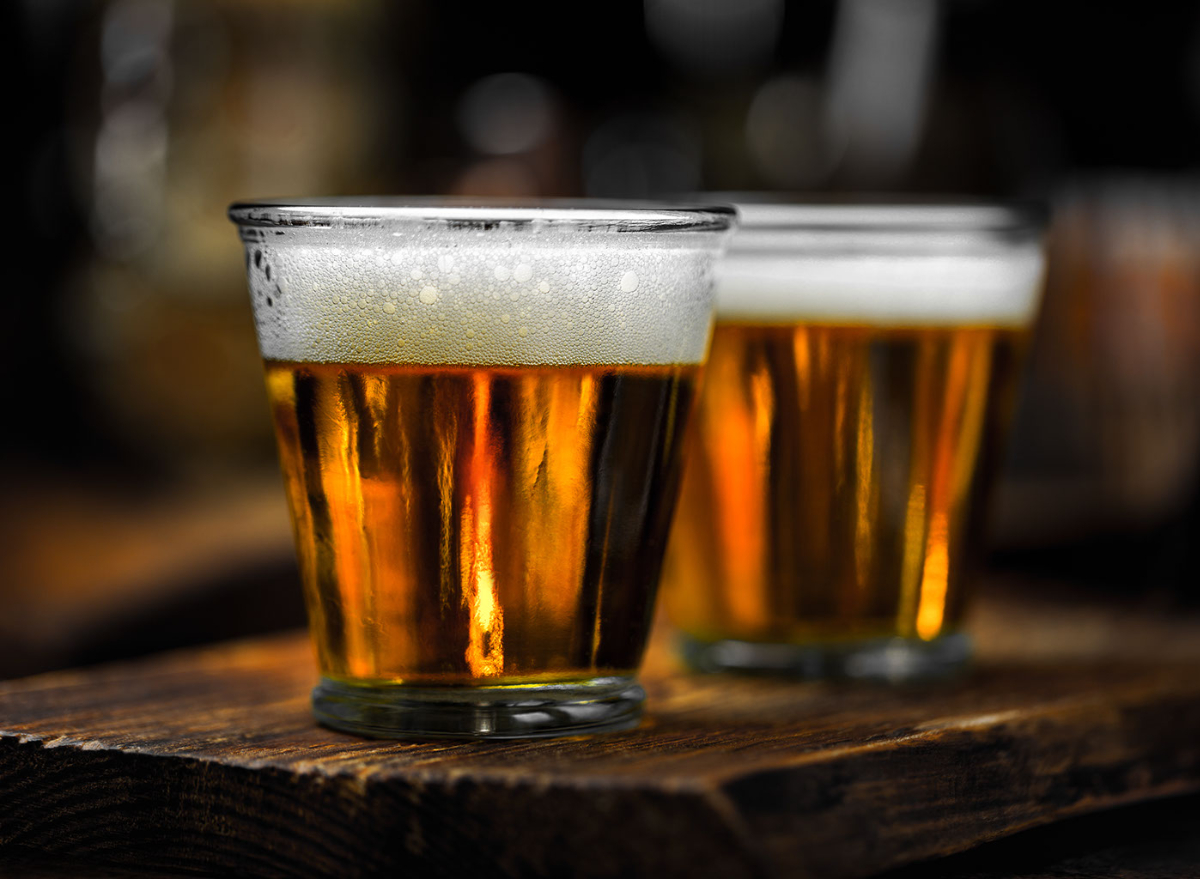
The researchers found that if you want to lose weight and still enjoy the occasional sip, there’s a particular amount of alcohol that will allow you to do that. From their analysis, they state that beer “seems to have a direct effect on weight gain, and on waist circumference in men.” That much, you probably already had a hunch about. However, they say that daily amounts of beer greater than or equal to 500 milliliters—that is, about 16.9 ounces—increase the risk of not losing weight.
The reason points to an increasing understanding.
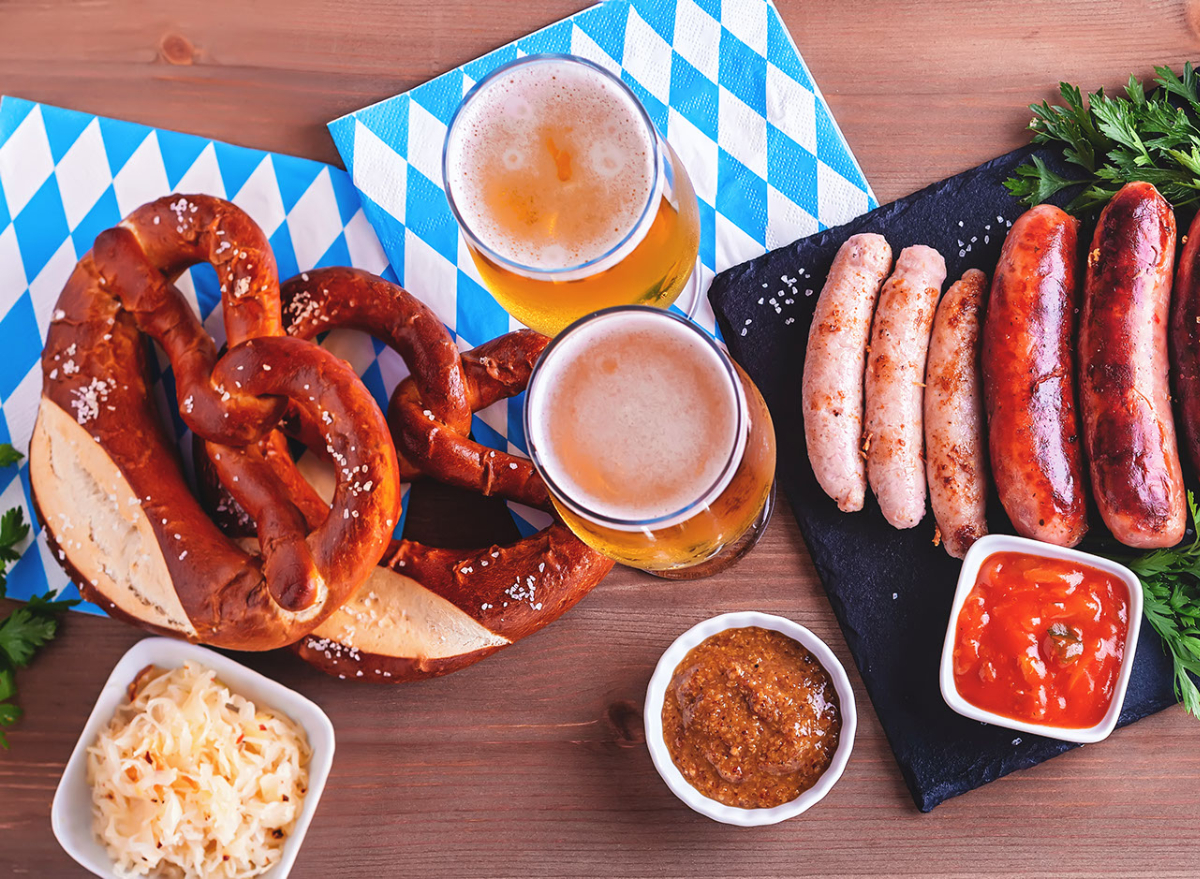
Certainly, the calories and other macros in beer and alcoholic drinks all add up within your daily intake. But also, science is increasingly showing that what we eat affects the gut microbiome in a way that can often impact weight loss. It’s not just about “weight”: It’s that some foods inhibit our body’s ability to use food and drinks as fuel, while other foods help to facilitate that process. (Read The Secret to Avoiding Obesity May Lie in Your Gut, Says New Study.)
The researchers in this study found that when alcohol did yield a beneficial health effect, such as when the antioxidants in beer seemed to promote cardiovascular health, the amount of alcohol the study participants had consumed was really small—in some cases, less than one ounce.
So while from person to person such a small serving may or may not be enough to satisfy that sipping feeling, these findings definitely suggest that if losing weight has been a struggle but you’re still drinking regularly, then it might be time to get real about the role alcohol is playing in what you see when you step on the scale.
We’ve got more content to support you:
- The Best Supplements to Take When Exercising for Weight Loss
- Secret Side Effects of Drinking Wine, Says Science
- Ways Drinking Lemon Water Helps You Lose Weight, Says Science
- Everyday Habits That Make You Older, Say Experts
